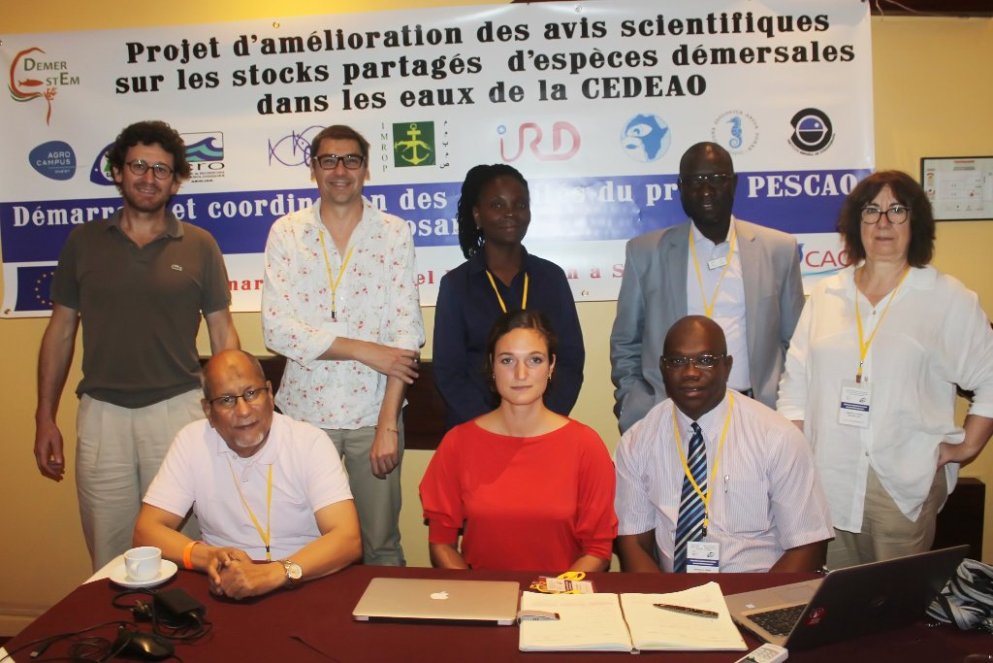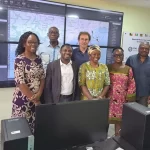A lack of information and a lack of integration into national development strategies undermine the contribution of fisheries to the economic development and management of West Africa fisheries.
This component aims to improve regional governance of marine resources through knowledge-based advice and researched scientific data via the following results:
Result 1 – Knowledge of the state of shared stocks and/or fisheries of common interest is to improved notably through enhanced data collection, harmonized assessment methodologies and better consideration of climate and hydrologic changes, etc.
Result 2 – Management measures / plans for shared stocks and/or fisheries of common interest are developed and implemented, with full association of stakeholders – including small scale fishermen and women involved in trading and processing activities.
Result 3 – These management measures may include specific measures to reduce by-catches of endangered species, the impact on marine habitats and/or post-harvest losses.
This component is being implemented through the following projects:
CECAF-PESCAO
The Fishery Committee for the Eastern Central Atlantic (CECAF) promotes the sustainable utilization of the living marine resources within its area of competence by the proper management and development of the fisheries and fishing operations. One key activity of CECAF is the conduct of scientific working groups whereby countries pool available fisheries and scientific data for selected fishery resources to assess the state of the stocks and the fisheries to ensure the best sustainable use of the resources for the benefit of the coastal countries. This is also essential information for reporting on progress with the implementation of Sustainable Development Goal 14.
The CECAF working groups provide scientific advice on exploitation options for small pelagic and demersal resources with regular intervals. These are submitted to the members of CECAF for their appropriate action after validation and adoption through its Scientific Sub-Committee (SSC) and the Committee, and the 22nd session of CECAF that met in September 2019, provided management advice for more than 100 stocks in the CECAF area. The overarching goal of Fishery Committee for the West-Central Gulf of Guinea (FCWC) is to ensure the sustainable development of the fisheries resources in the FCWC Convention Area, which includes Benin, Côte d’Ivoire, Ghana, Liberia, Nigeria, and Togo. All of the FCWC countries are also members of CECAF, and hence CECAF advice are of direct relevance to FCWC.
One key challenge that has been identified is the actual uptake by countries of the scientific advice provided, and an analysis conducted by CECAF shows that many members countries, including in the FCWC region, do not take full advantage of the advice provided when taking national management decision. Hence, to tackle this issue CECAF and FCWC are embarking on a joint analysis to identify challenges of integrating CECAF management advice into the management processes in FCWC countries and propose mitigation measures. Based on these case studies a strategy on how to improve uptake of CECAF advice will be developed as well as a monitoring tool for CECAF scientific advice in the future. The expected outcomes for this output are: (i) Effective Integration of CECAF Management Advice into national frameworks; (ii) Improved Science-Management process in ECOWAS and other African CECAF member States; and (iii) Enhanced Regional Policy Dialogue among relevant stakeholders for a participatory monitoring on the implementation of CECAFs management recommendations in the region.
This work is supported by the European Union-funded CECAF- PESCAO project that aims to improve regional governance of marine resources in the southern area of the CECAF and strengthen CECAF’s capacity as a knowledge-sharing advisory body for marine resources in Western Africa. Additional support will be provided through the Norway-funded EAF-Nansen Programme (Supporting the Application of the Ecosystem Approach to Fisheries Management considering Climate and Pollution Impacts) to extend the case studies to all of the six FCWC countries. Both the CECAF-PESCAO project and the EAF-Nansen Programme are executed by FAO.
– By Merete Tandstad, Food and Agriculture Organization of the United Nations
DEMERSTEM
The DEMERSTEM project is a collaborative project between 10n research and educational institutions primarily aimed at improving and supporting the production of scientific advice on the status of demersal species stocks to serve fisheries management and thus enable the sustainable exploitation of fisheries under national jurisdiction (EEZ) of partner countries in West Africa.
GREPPAO
The project focuses on economic and social issues associated with small pelagic fisheries in West Africa. It has set itself the objective of contributing to the realization of the general program of PESCAO which is to improve the contribution of fishery resources to sustainable development, food security, and poverty reduction in West Africa. The specific objectives of the GREPPAO action are to improve the contribution of cross-border small pelagic (Ppt) fisheries to food security for West African populations, increase the added value created throughout the fisheries sector-specific to Ppt and contribute to the management of migratory fisheries relating to Ppt.
The project revolves around three activities including the conduct of research (A1), the articulation between research and public policies (A2) and the capacity building of researchers and the improvement of knowledge (A3). Annex 3 summarizes the tasks associated with each activity, the institutions responsible, in addition to the deliverables and execution times.
The implementation of activities and associated tasks will be carried out within the framework of a very diversified partnership associating research centers and West African universities, the two sub-regional commissions, CEDEO and the IOC / UNESCO.






